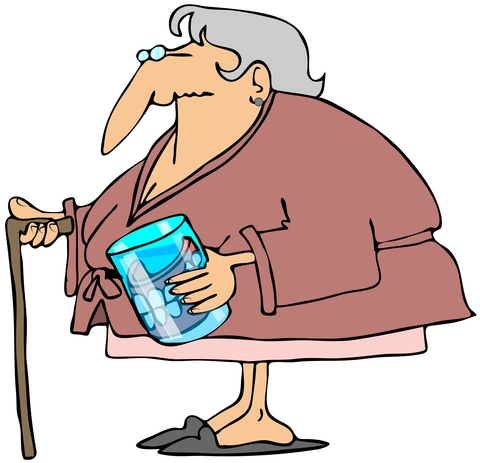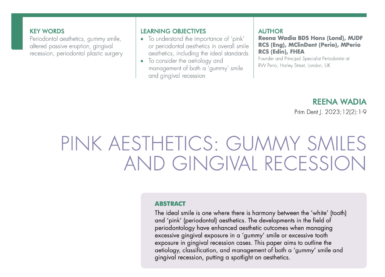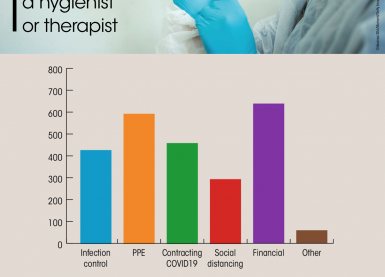Home/Articles
/ Periodontology /
10 Key Points on Managing Periodontal Disease in the Elderly with Dr Mike Milward
September 3, 2016

- Life expectancy in the UK is increasing. Approximately 33% children born in 2012 will survive till 100 years old compared to 1% in 1908. Between 1901 and 2010, the number of people aged 40 and older trebled from 9.7 million to 30.8 million. In 2007, the number of people in Britain aged over 65 out numbered the number of people under 16 for the first time (Office for National Statistics).
- The elderly are a growing group and are retaining their teeth for longer so the requirements for dental treatment in this age group are on the increase. Furthermore, there is a higher chance of finding increased levels of periodontal pocketing in the elderly.
- Why is periodontitis important? An important consequence is of untreated disease is tooth loss, which will impact on nutrition, quality of life, self esteem, whole body wellbeing and aesthetics. It is also associated with other systemic diseases including diabetes and cardiovascular disease.
- Research is currently limited, however periodontitis is thought not to occur as a direct consequence of ageing but due to the cumulative effect of risk factors for periodontitis.
- However a number of age-related changes occur that may impact on the disease process:
– Periodontal tissues – reduction in epithelial thickness, reduced keratinisation, reduced cell turnover, reduced blood supply, reduced saliva production – this all increases susceptibility to periodontitis.
– Immune function – reduced activity and function of lymphocytes, reduced cytokine production, reduced antioxidant levels, reduced neutrophil chemotaxis – reduced ability to resist infection and heal.
– Plaque biofilm – possibly increased importance of bacteria, reduced dexterity so increased accumulation, increased restorative work in general so a higher chance of local plaque retentive factors. - We first need to identify the risk profile of our patients. Software such as PreViser can help with this. Risk assessment allows us to identify patients at risk and prevent the disease if possible – we are moving away from the ‘repair model’ of healthcare to a ‘wellness model’. Risk assessment also provides objective feedback to patient, educates and empowers patients to participate in their own oral health and focuses the resources we have.
- We need to provide our patients with tailored oral hygiene advice. Particular difficulties in the elderly may be lack of understanding and dexterity issues. Debilitating disease such as stroke and arthritis is on the increase and can significantly affect a patient’s ability to perform oral hygiene techniques. We can help these patients by suggesting a powered brush (easier to grip handle, not relying on fine motor skills) and you may also customise the brush by placing a handle/elastic band/tennis ball around. Watch them perform their oral hygiene regime – this will give you clues as to where they may be struggling. Always reinforce oral hygiene and encourage feedback.
- If they have lost a considerable number of teeth, their dietary intake may be affected – this is important in terms of nutrition. This may lead to age-related malnutrition, reduced vitamin intake and lower levels of antioxidants, which are risk factors for further periodontitis. Consider prosthetic replacement of missing teeth if appropriate and refer to the GP to address nutritional deficiencies if required.
- Look out for signs of undiagnosed diabetes in this cohort. If they also have other risk factors you may suggest a screening visit to the GP. Be aware that many of these patients will have hypertension and may be on calcium channel blockers e.g. amlodipine, which can cause gingival overgrowth.
- The elderly respond well to conventional periodontal therapy.
These notes have been adapted from a webinar organised by the BSP. To find out about similar events and to access other resources, please visit – www.bsperio.org.uk.



